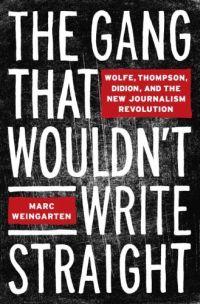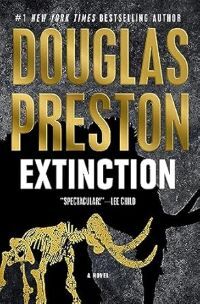

Purchase
The Gang That Wouldn't Write Straight
Marc Weingarten
Wolfe, Thompson, Didion, and the New Journalism Revolution
Crown
November 2005
336 pages
ISBN: 1400049148
Hardcover
Add to Wish List
Non-Fiction Biography
. . . In Cold Blood, The Electric Kool-Aid Acid Test,
Fear and Loathing in Las Vegas, Slouching Towards Bethlehem,
The Armies of the Night . . .
Starting in
1965 and spanning a ten-year period, a group of writers
including Tom Wolfe, Jimmy Breslin, Gay Talese, Hunter S.
Thompson, Joan Didion, John Sack, and Michael Herr emerged
and joined a few of their pioneering elders, including
Truman Capote and Norman Mailer, to remake American letters.
The perfect chroniclers of an age of frenzied cultural
change, they were blessed with the insight that traditional
tools of reporting would prove inadequate to tell the story
of a nation manically hopscotching from hope to doom and
back again�from war to rock, assassination to drugs, hippies
to Yippies, Kennedy to the dark lord Nixon. Traditional
just-the-facts reporting simply couldn�t provide a neat and
symmetrical order to this chaos.
Marc Weingarten has
interviewed many of the major players to provide a startling
behind-the-scenes account of the rise and fall of the most
revolutionary literary outpouring of the postwar era, set
against the backdrop of some of the most turbulent�and
significant�years in contemporary American life. These are
the stories behind those stories, from Tom Wolfe�s
white-suited adventures in the counterculture to Hunter S.
Thompson�s drug-addled invention of gonzo to Michael Herr�s
redefinition of war reporting in the hell of Vietnam.
Weingarten also tells the deeper backstory, recounting the
rich and surprising history of the editors and the magazines
who made the movement possible, notably the three greatest
editors of the era�Harold Hayes at Esquire, Clay
Felker at New York, and Jann Wenner at Rolling
Stone. And finally Weingarten takes us through the
demise of the New Journalists, a tragedy of hubris,
miscalculation, and corporate menacing.
This is the
story of perhaps the last great good time in American
journalism, a time when writers didn�t just cover stories
but immersed themselves in them, and when journalism didn�t
just report America but reshaped it.
Comments
No comments posted.
Registered users may leave comments.
Log in or register now!
| 


 © 2003-2025 off-the-edge.net
all rights reserved Privacy Policy
© 2003-2025 off-the-edge.net
all rights reserved Privacy Policy